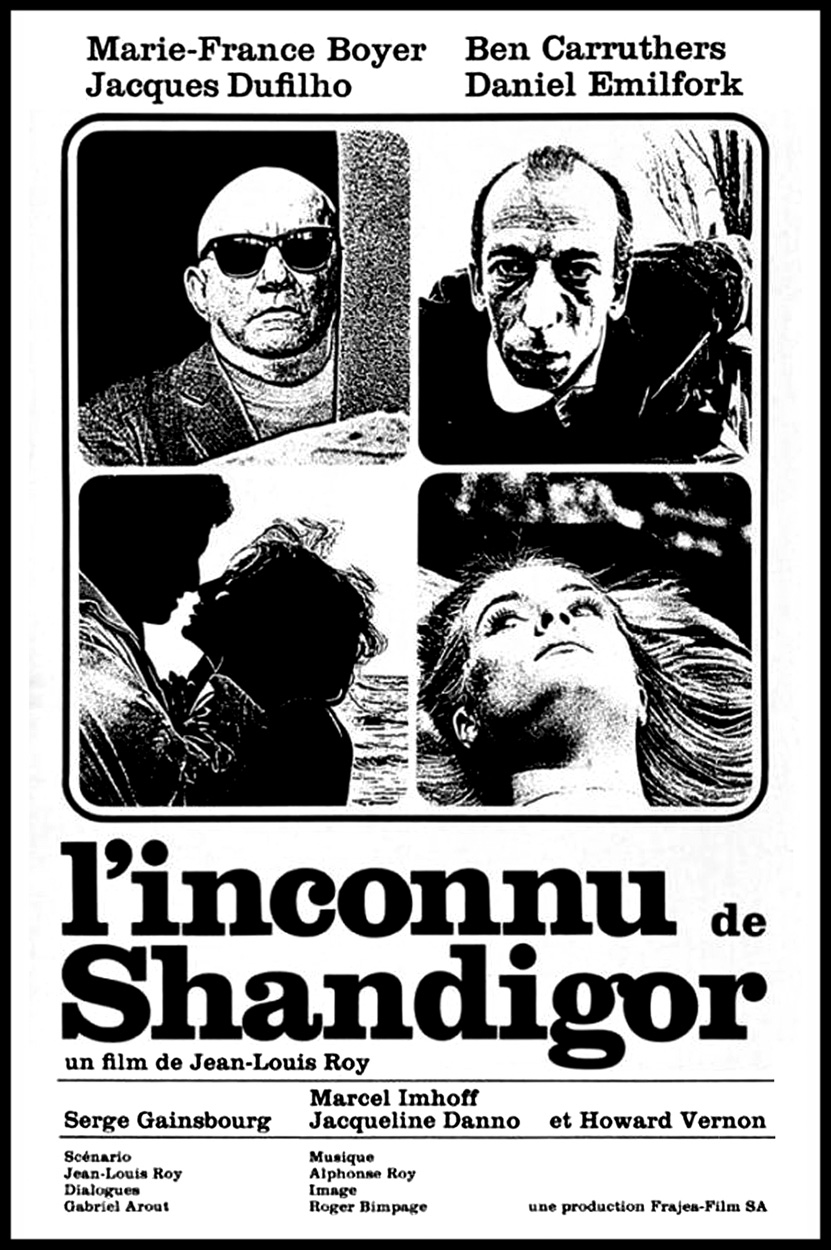|
 In the late-1960s, the international success of the James Bond films gave rise to a tsunami of cheap knock-offs and send-ups from around the world. Most of them were fun yet forgettable, but this playful pastiche by Swiss director Jean-Louis Roy is one of the most delightfully stylish and subversive of that lot, as chaos erupts amongst competing espionage agencies after a scientist, hoping to save the world, unveils the ultimate weapon for peace. Although the film played in competition at the 1967 Cannes Film Festival, SHANDIGOR never made it to US screens, probably because potential distributors found it too quirky and esoteric to compete with colorful mainstream spoofs like the Derek Flint and Matt Helm franchises... The trouble begins when wheelchair-bound, misanthropic genius Professor Herbert von Krantz (THE CITY OF LOST CHILDREN's Daniel Emilfork) creates an invention which renders nuclear weapons harmless. Consequently, every world power wants to get their hands on these 'Annulator X-113' blueprints, which are currently stored in von Krantz's isolated high-tech villa, where he's holed up like a hermit along with his lovely but lonely daughter Sylvaine (Marie-France Boyer) and loyal albino assistant Yvan. The Russians dispatch an entourage of matching trenchcoat-and-fedora-clad spies. The Americans assign agent Bobby Gun (Howard Vernon), an ex-Nazi scientist now working for the US, to the case. The French call in a team of bald trained-killers posing as a musical quintet and led by Serge Gainsbourg
In the late-1960s, the international success of the James Bond films gave rise to a tsunami of cheap knock-offs and send-ups from around the world. Most of them were fun yet forgettable, but this playful pastiche by Swiss director Jean-Louis Roy is one of the most delightfully stylish and subversive of that lot, as chaos erupts amongst competing espionage agencies after a scientist, hoping to save the world, unveils the ultimate weapon for peace. Although the film played in competition at the 1967 Cannes Film Festival, SHANDIGOR never made it to US screens, probably because potential distributors found it too quirky and esoteric to compete with colorful mainstream spoofs like the Derek Flint and Matt Helm franchises... The trouble begins when wheelchair-bound, misanthropic genius Professor Herbert von Krantz (THE CITY OF LOST CHILDREN's Daniel Emilfork) creates an invention which renders nuclear weapons harmless. Consequently, every world power wants to get their hands on these 'Annulator X-113' blueprints, which are currently stored in von Krantz's isolated high-tech villa, where he's holed up like a hermit along with his lovely but lonely daughter Sylvaine (Marie-France Boyer) and loyal albino assistant Yvan. The Russians dispatch an entourage of matching trenchcoat-and-fedora-clad spies. The Americans assign agent Bobby Gun (Howard Vernon), an ex-Nazi scientist now working for the US, to the case. The French call in a team of bald trained-killers posing as a musical quintet and led by Serge Gainsbourg  (who'd just achieved notoriety for his controversial yé-yé pop-tune "Les Sucettes"). And all of them are simultaneously, unsurreptitiously casing von Krantz's home. Meanwhile, Sylvaine pines for her ex-boyfriend, handsome playboy Manuel (Ben Carruthers, from THE DIRTY DOZEN and John Cassavetes' SHADOWS), seen in flashbacks of their time together in picturesque Shandigor. Tired of being locked away by her father, she runs off, only to promptly wind up kidnapped and drugged, amidst a joyously escalating array of assassination attempts and deceased spies by the dozen. Eventually reunited with her great love -- in hopes that Sylvaine will accidentally spill the beans about her dad's plans -- all of these factions end up scrambling to locate a hidden reel of home movies... Written by Roy, Gabriel Arout and Pierre Koralnik (who later directed the Gainsbourg projects ANNA and CANNABIS), (who'd just achieved notoriety for his controversial yé-yé pop-tune "Les Sucettes"). And all of them are simultaneously, unsurreptitiously casing von Krantz's home. Meanwhile, Sylvaine pines for her ex-boyfriend, handsome playboy Manuel (Ben Carruthers, from THE DIRTY DOZEN and John Cassavetes' SHADOWS), seen in flashbacks of their time together in picturesque Shandigor. Tired of being locked away by her father, she runs off, only to promptly wind up kidnapped and drugged, amidst a joyously escalating array of assassination attempts and deceased spies by the dozen. Eventually reunited with her great love -- in hopes that Sylvaine will accidentally spill the beans about her dad's plans -- all of these factions end up scrambling to locate a hidden reel of home movies... Written by Roy, Gabriel Arout and Pierre Koralnik (who later directed the Gainsbourg projects ANNA and CANNABIS),  the story contains the usual espionage accouterments and gadgets, with all of its cloak-and-dagger shenanigans played with a straight face, even when it veers into wholly absurd sci-fi territory. There's madness, betrayal, a liquefied intruder, Russian torture that involving listening to capitalist rock music, Gainsbourg serenading a candle-lit funeral with his original song "Bye Bye Mister Spy," plus von Krantz's home is fitted with surveillance devices, booby traps and a backyard pool that's home to some sort of unseen yet ravenous underwater creature. Beautifully shot in black-and-white, there's a chilly atmosphere throughout and loads of striking architecture and scenery, including Barcelona's fanciful Park Güell, which adds immeasurably to this remarkable film's mystery. the story contains the usual espionage accouterments and gadgets, with all of its cloak-and-dagger shenanigans played with a straight face, even when it veers into wholly absurd sci-fi territory. There's madness, betrayal, a liquefied intruder, Russian torture that involving listening to capitalist rock music, Gainsbourg serenading a candle-lit funeral with his original song "Bye Bye Mister Spy," plus von Krantz's home is fitted with surveillance devices, booby traps and a backyard pool that's home to some sort of unseen yet ravenous underwater creature. Beautifully shot in black-and-white, there's a chilly atmosphere throughout and loads of striking architecture and scenery, including Barcelona's fanciful Park Güell, which adds immeasurably to this remarkable film's mystery.
© 2019 by Steven Puchalski.
|